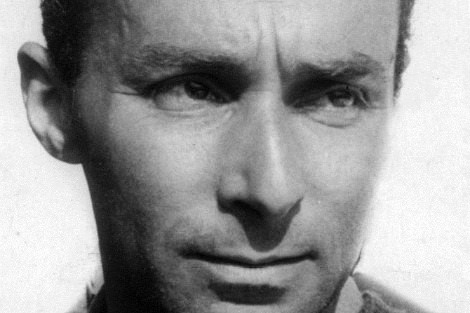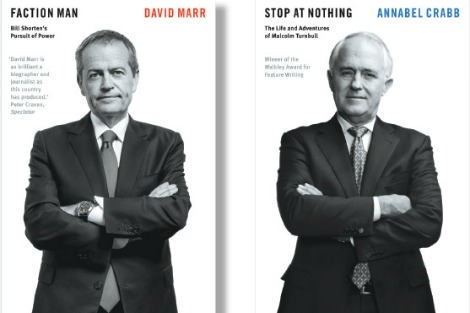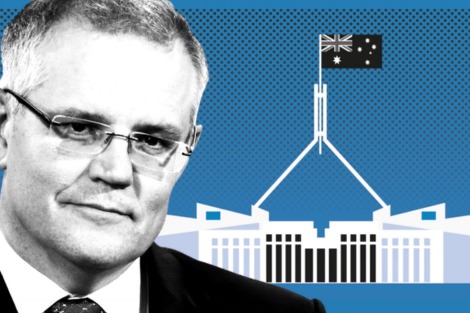Keywords: Tension
There are more than 200 results, only the first 200 are displayed here.
-

ARTS AND CULTURE
- Tim Kroenert
- 07 December 2016
Families can be sites of great love and nourishment, and also of pain and trauma - often, all of these things, to varying degrees. The Family Fang focuses on the lives of adults bearing the mental and emotional ramifications of what can fairly be described as an abusive upbringing. It provides an illuminating counterpoint to Little Men, in which the close and sincere friendship of teenage boys comes under strain from their parents' 'grown-up' problems.
READ MORE 
-

ARTS AND CULTURE
- Barry Gittins
- 06 December 2016
5 Comments
Cricket games, feasts, the origami orgy of Christmas present wrappings rent asunder ... the underlying truth in all of this, for many of us, is deep emotional pain and loneliness that's gone unheard, unnoticed, all year. Family is both a lodestone and a millstone at Christmas. It's a truth magnified by aspirational love. As Pope John XXIII once said, cutting close to home, 'Mankind is a great, an immense family. This is proved by what we feel in our hearts at Christmas.' It's a big ask that carries a price.
READ MORE 
-

ARTS AND CULTURE
- Tim Kroenert
- 05 October 2016
1 Comment
At the opening of the Environmental Film Festival Australia in Melbourne last week, festival patron and former Greens senator Bob Brown highlighted the movement against oil drilling in the Great Australian Bight. He painted a picture wherein a major spill in the region could lead to an environmental disaster stretching as far from the site as the NSW coast. His words make the release of Deepwater Horizon, about the disaster that led to the 2010 BP oil spill in the Gulf of Mexico, even more timely.
READ MORE 
-

ARTS AND CULTURE
- Tim Kroenert
- 28 September 2016
1 Comment
Snowden's disclosures regarding the data-mining activities of the US government sparked a worldwide debate about security versus privacy that rages to this day. If his status as either a villain or a hero - a traitor, or the ultimate patriot - remains a matter of debate in some circles, you won't die wondering in which camp Oliver Stone sits. In Snowden the famously didactic filmmaker posits an utterly sympathetic portrait within the structure of a lithe and gripping political thriller.
READ MORE 
-

ARTS AND CULTURE
- Tim Kroenert
- 08 September 2016
2 Comments
Don't mistake this for an idyll. Incongruently, the youngest child has built a bone shrine to Pol Pot. The father oversees a rigorous physical exercise regime; later he will boast that they have the fitness levels of elite athletes. Yet during a rock climbing expedition, Ben is unsympathetic when one of them injures himself, insisting the boy draw on his personal resources to extricate himself from very real peril.
READ MORE 
-

AUSTRALIA
- Kate Galloway
- 06 September 2016
5 Comments
This is the scandalous state of Indigenous affairs in Australia. Aboriginal and Torres Strait Islander people and their communities literally face a life and death struggle against the state itself. These are not isolated incidents. They represent the intrinsic failure of our society to heed the concerns of communities themselves, and to engage with fellow citizens in a dignified and respectful way. The failure is so grave that state treatment meted out to Indigenous Australians is actively harmful on a large scale.
READ MORE 
-

AUSTRALIA
- Brian Matthews
- 25 July 2016
10 Comments
Holocaust survivor Primo Levi wrote If This is a Man to carry out what he saw as the critical task of bearing witness, and he became one of the greatest writers of the 20th century as he continued to bear witness one way and another in later books. Some day, one of Australia's asylum seekers will, like Levi and with the same sense of dread and horror, tell his or her story to ensure that someone bears witness; and to confirm that all of us are implicated.
READ MORE 
-

ARTS AND CULTURE
Our one star has departed. We're wholly dark. The clouds are shedding pretension to friendliness, flake by flake. Which of us guides the other across this glassine surface that blanks every letter, deadening words. Who is that figure, globe-headed, dirndl-skirted, vacant hand-holder. The street-sign makes Mother, her little familiar. When you were born the ground had taken more than a dusting. We were locked in, but not forever. Now you are thirteen, age of reversible prime ...
READ MORE 
-

ARTS AND CULTURE
- Tim Kroenert
- 09 June 2016
Vice-principal Rickard claims the credit for having lifting the status of the once struggling public school, and sees in the smart but troubled new student Mark both the potential to do well and a danger to his own legacy. For his own part Mark, who was previously kicked out of the private school to which he had earned a scholarship, sees in Rickard a misguided do-gooder and, later, something a little more dangerous: an ambitious man whose ego is the flipside of insecurity.
READ MORE 
-

AUSTRALIA
- Andrew Hamilton
- 02 June 2016
8 Comments
David Marr describes Shorten at work in the claustrophobic world of the Labor factions and the unions where great haters abound. Annabel Crabb has a lighter touch, describing the career of Turnbull, with all its energy, intellectual and tactical brilliance, and victories with obvious enjoyment and in sunlit prose. The accounts raise two questions: Do the qualities of leaders matter much? And what insight do the leaders' stories provide into the likely achievements of the government they would lead?
READ MORE 
-

AUSTRALIA
- Andrew Hamilton
- 12 May 2016
5 Comments
It is important constantly to move from the budget to consider the plan it enables. If the budget is for the whole nation, it should look to the good of all, with each person and business having a responsibility for the good of others, particularly the most vulnerable. When budgets are constructed in such a way that the cost of their balancing is gross inequality and the exclusion of vulnerable people from participation in society, they should be rejected. They do not serve but betray the economy.
READ MORE 
-

ARTS AND CULTURE
- Barry Gittins
- 20 April 2016
1 Comment
When you make a meal of body politic you've got to crack the whole thing open, season to taste with bestrewn flakes of policy offal and prejudged bakes ... serve offshore detention? Just add water, salt to taste and erase border. Grind those grubby unions, peel any sign of party donations and extractions from sorbeted cosseted carapaces. Stop the gloats, straighten up and get flyers Right ... Serve pre-heated post May's entree of budget salad.
READ MORE 